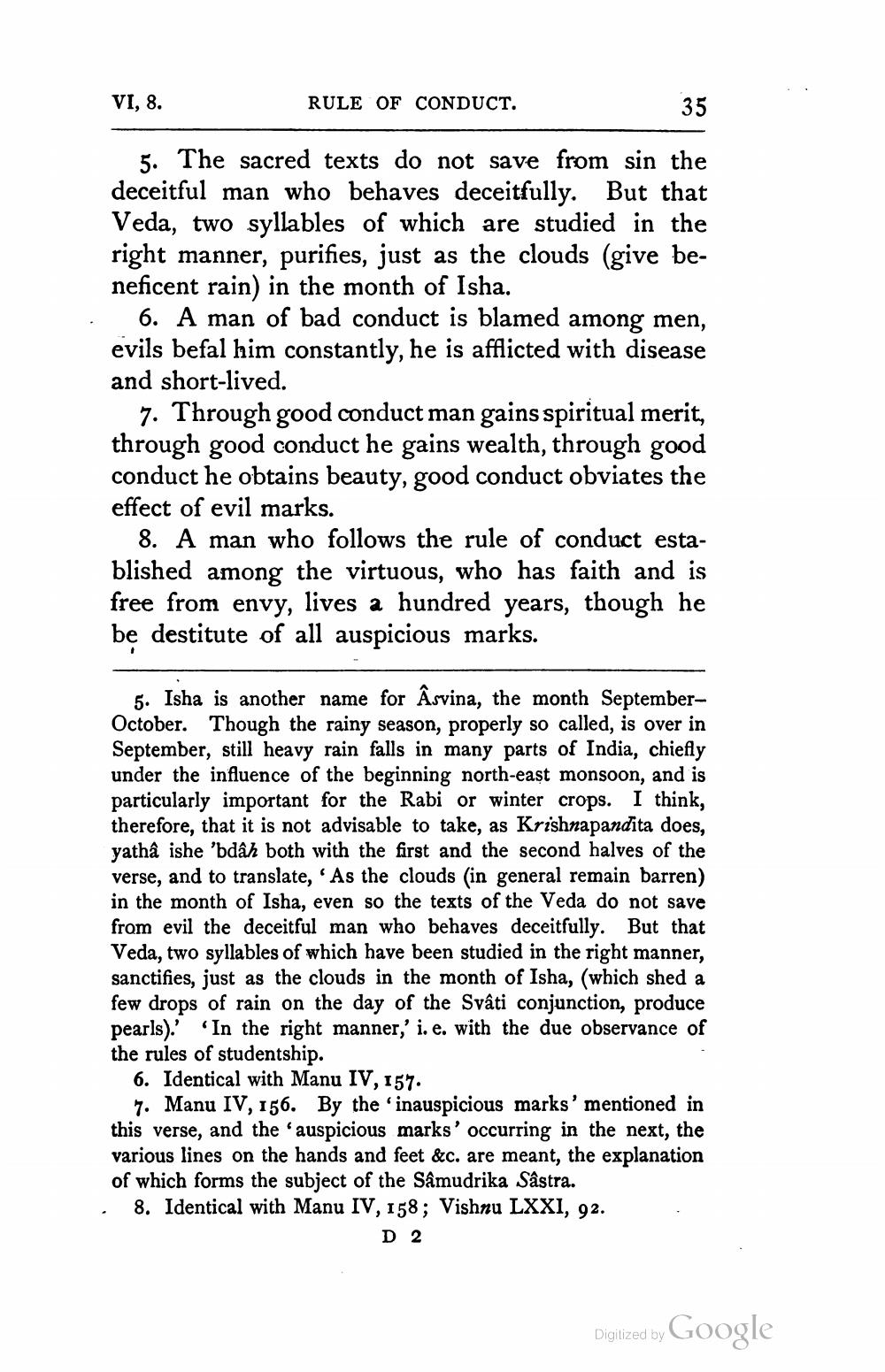________________
VI, 8.
RULE OF CONDUCT.
35
5. The sacred texts do not save from sin the deceitful man who behaves deceitfully. But that Veda, two syllables of which are studied in the right manner, purifies, just as the clouds (give beneficent rain) in the month of Isha.
6. A man of bad conduct is blamed among men, evils befal him constantly, he is afflicted with disease and short-lived.
7. Through good conduct man gains spiritual merit, through good conduct he gains wealth, through good conduct he obtains beauty, good conduct obviates the effect of evil marks.
8. A man who follows the rule of conduct established among the virtuous, who has faith and is free from envy, lives a hundred years, though he be destitute of all auspicious marks.
5. Isha is another name for Âsvina, the month SeptemberOctober. Though the rainy season, properly so called, is over in September, still heavy rain falls in many parts of India, chiefly under the influence of the beginning north-east monsoon, and is particularly important for the Rabi or winter crops. I think, therefore, that it is not advisable to take, as Krishnapandita does, yatha ishe 'bdâh both with the first and the second halves of the verse, and to translate,' As the clouds (in general remain barren) in the month of Isha, even so the texts of the Veda do not save from evil the deceitful man who behaves deceitfully. But that Veda, two syllables of which have been studied in the right manner, sanctifies, just as the clouds in the month of Isha, (which shed a few drops of rain on the day of the Svâti conjunction, produce pearls).' 'In the right manner,' i. e. with the due observance of the rules of studentship.
6. Identical with Manu IV, 157.
7. Manu IV, 156. By the 'inauspicious marks' mentioned in this verse, and the auspicious marks' occurring in the next, the various lines on the hands and feet &c. are meant, the explanation of which forms the subject of the Samudrika Sâstra. 8. Identical with Manu IV, 158; Vishnu LXXI, 92.
D2
Digitized by Google




